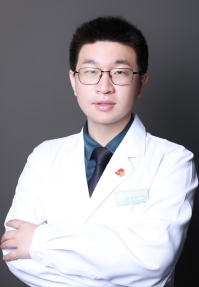Why do nose hairs grow longer and thicker after trimming, and what should I do about it?
Nasal hair becoming longer and thicker after trimming may be caused by factors such as genetics, endocrine disorders, hirsutism, polycystic ovary syndrome (PCOS), or Cushing's syndrome. It is recommended to seek medical attention promptly. Improvement can be achieved under medical guidance through general management, medication, and other approaches. Specific analyses are as follows:
1. Genetics: If parents have thick or abundant body hair, their children may also inherit similarly dense hair growth, which is generally considered a normal physiological phenomenon and does not require special treatment.
2. Endocrine disorders: Chronic熬夜, excessive mental stress, or similar conditions may lead to hormonal imbalances in the body, resulting in nasal hair growing longer and thicker after being trimmed. It is important to adjust daily routines, maintain sufficient sleep, and avoid staying up late.
3. Hirsutism: Hirsutism may be related to congenital conditions or hormonal imbalances, potentially causing the aforementioned symptoms. Under medical supervision, patients may use medications such as spironolactone tablets, flutamide tablets, or cyproterone acetate tablets for treatment.
4. Polycystic ovary syndrome (PCOS): PCOS may result from genetic or environmental factors and can cause symptoms such as abdominal pain and fatigue, along with progressively longer and thicker nasal hair after trimming. Patients may follow medical advice to take medications like dydrogesterone tablets, progesterone capsules, or Wuji Baifeng pills to improve symptoms.
5. Cushing's syndrome: Cushing's syndrome may be associated with genetic factors or autoimmune diseases, and typical symptoms include moon face and excessive hair growth. Under medical guidance, medications such as aminoglutethimide tablets, ketoconazole tablets, or mifepristone tablets may be used for treatment.
In daily life, it is important to get adequate rest, ensure sufficient sleep, avoid staying up late, and engage appropriately in outdoor activities such as walking or calisthenics, which may aid in recovery.









